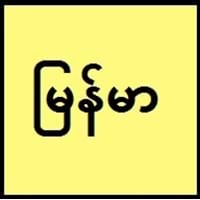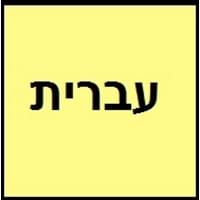Burmese vs Hebrew
- The naming of people in Burmese is strange. There is no last name, often name is rhymed such as Ming Ming, Mo Mo or Jo Jo.
- It appears as odd language to many people because it has peculiar pitch register, tonal form as language.
- The original language of Bible is Hebrew.
- The men and women use different verbs in hebrew language.
Burmese and Hebrew Language History
Comparison of Burmese vs Hebrew language history gives us differences between origin of Burmese and Hebrew language. History of Burmese language states that this language originated in 1113 AD whereas history of Hebrew language states that this language originated in 1000 BC. Family of the language also forms a part of history of that language. More on language families of these languages can be found out on Burmese and Hebrew Language History.
Burmese and Hebrew Greetings
People around the world use different languages to interact with each other. Even if we cannot communicate fluently in any language, it will always be beneficial to know about some of the common greetings or phrases from that language. This is where Burmese and Hebrew greetings helps you to understand basic phrases in Burmese and Hebrew language. Burmese word for "Hello" is မင်္ဂလာပါ (maingalarpar) or Hebrew word for "Thank You" is תודה (Toda). Find more of such common Burmese Greetings and Hebrew Greetings. These greetings will help you to be more confident when conversing with natives that speak these languages.
Burmese vs Hebrew Difficulty
The Burmese vs Hebrew difficulty level basically depends on the number of Burmese Alphabets and Hebrew Alphabets. Also the number of vowels and consonants in the language plays an important role in deciding the difficulty level of that language. The important points to be considered when we compare Burmese and Hebrew are the origin, speaking countries, language family, different greetings, speaking population of these languages. Want to know in Burmese and Hebrew, which language is harder to learn? Time required to learn Burmese is 44 weeks while to learn Hebrew time required is 44 weeks.





